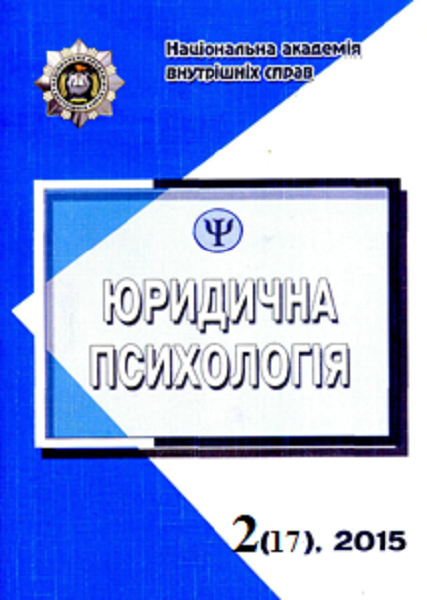Criminal Manipulation During Fraud
Keywords:
deception, manipulation, fraud, fraudulent operation, the manipulation target
Abstract
The aim of this article is the to analyse of the practical and theoretical developments of psychological influence and manipulation during fraud. Fraud means providing false data suppression information about facts or circumstances, report of which was necessary towards the introduction of the victim to mislead or to support the error of a person for the purpose of taking someone else’s property, and which led to this position of the victim. Deception can be incorporated into the structure of manipulative influence, and can be an agent of influence. Criminal manipulation can be used in a number of crimes. Among the acquisitive crimes committed with the use of such effects on the personality, the fraud stands out. Criminal manipulation is performed during communication process with the use of various methods and techniques, including modern psychotechnologies. Manipulation has its temporal, spatial and social patterns. The handling process may be extended in time and provides a multi-stage stepwise procedure of implementing manipulative influence on people. The implementation mechanism of manipulation can be described in line with the theory of cognitive dissonance, of the laws of perception and some others. One of the most important issues when considering technology manipulative influence is the question of the targets of this influence. Manipulators exploit such an attraction that needs to operate smoothly: the need for security, food, sense of community etc. The degree of success of manipulation largely depends on how wide is the number of psychological impact measures that are used by a manipulator and how the manipulator is flexible in their use. The application of modern psychological technologies makes a wide range of people more vulnerable to fraudulent attacks. In addition, it is important to take into account the psychological characteristics that increase vulnerability to criminal manipulation during fraud. Understanding and applying of psychological aspects of the mechanisms of the criminal manipulation by enforcement officers will contribute to the improvement of their professional competence, effective investigation and search activities.Downloads
Download data is not yet available.
Abstract views: 140 PDF Downloads: 679
Issue
Section
Psychology of operational, investigative and judicial activities
- Authors reserve the right to authorship of their own work and transfer to the magazine the right of the first publication of this work under the terms of the Creative Commons Attribution License, which allows other persons to freely distribute published work with mandatory reference to authors of the original work and the first publication of an article in this magazine.
- Authors have the right to enter into separate additional agreements on non-exclusive dissemination of the work in the form in which it was published in the journal (for example, to post an article in the institution's repository or to publish as part of a monograph), provided that the link to the first publication of the work in this journal is maintained.
- The journal's policy allows and encourages the posting of articles by authors on the Internet (for example, in electronic storehouses of institutions or on personal websites), both before the submission of this manuscript to the editorial office and during its editorial processing, as this contributes to the creation of a productive scientific discussion and positively affects the efficiency and dynamics of citing the published work.




